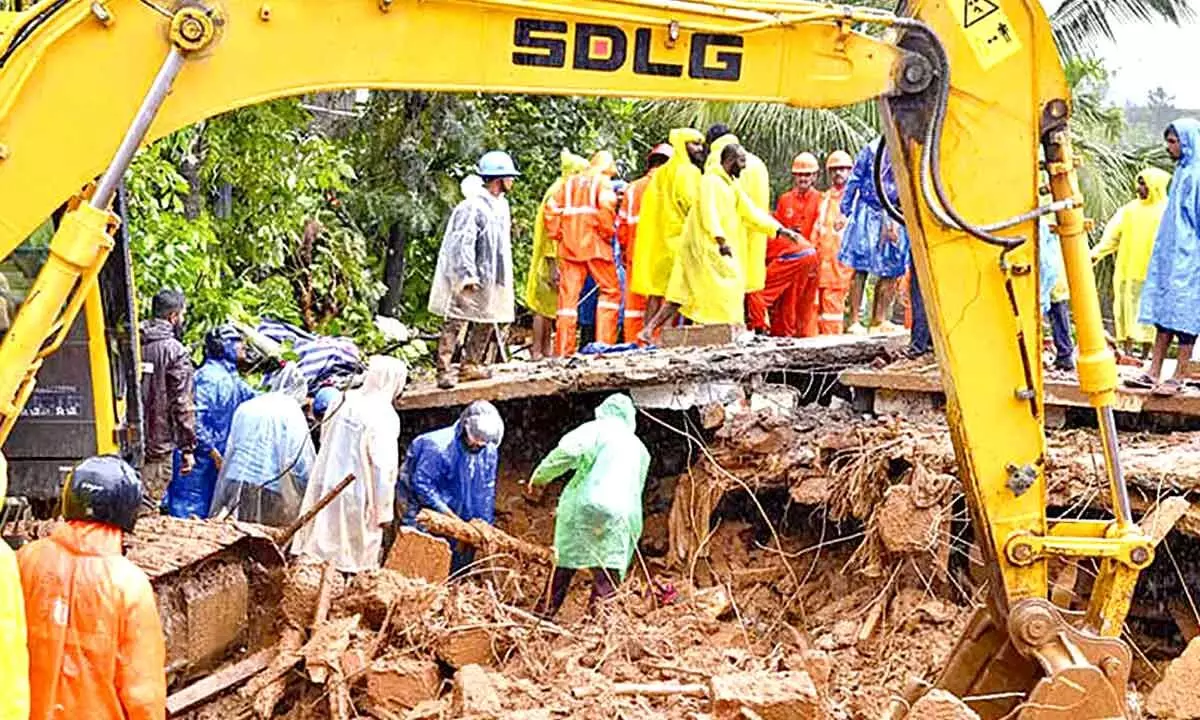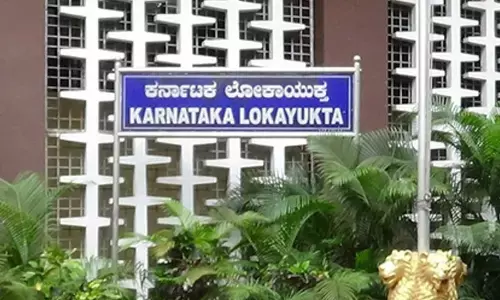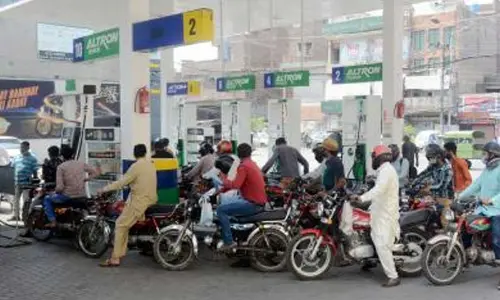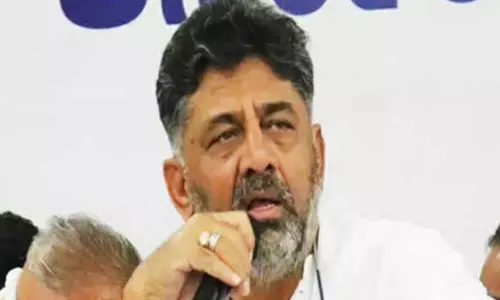Bolstering disaster management

Disaster management, no doubt, is a state subject, according to the Seventh Schedule of the Constitution of India. It is, however, well known, that the states lack the ability, as well as the resources, to discharge the responsibility effectively.
Disaster management, no doubt, is a state subject, according to the Seventh Schedule of the Constitution of India. It is, however, well known, that the states lack the ability, as well as the resources, to discharge the responsibility effectively. It is also strange, to find that some experts are arguing, that the proposed empowerment infringes on the Constitutional rights of the state. After all, the very purpose of the DM Act was to deal with the inability of the state governments in this regard
I had the privilege, and honour, of being a Founder Member, of the National Disaster Management Authority (NDMA), constituted in December 2005, following the enactment of the Disaster Management (DM) Act, 2005. The recent step taken by the government of India, to introduce a Bill in Parliament seeking to enhance the Disaster Management (DM) framework of the country, prompted me to write this piece. The Government of India and the NDMA have many significant accomplishments to their credit including the recently released National Disaster Management Plan, and the outstanding manner in which the National Disaster Response Force acquitted itself over the last two decades.
The disappointing fact remains, however, that disasters continue to wreak havoc, in terms of losses to property and lives, year after year, in several parts of the country, the efforts made by the central and state governments notwithstanding. The introduction of the Bill is, thus, a significant update, in the DM apparatus of the country.
The proposed Bill aims, among other things, at improving coordination among the various authorities concerned. It also proposes a new provision facilitating the establishment of Urban Disaster Management Authorities (UDMAs) and creation of disaster data bases, at the national and state levels, which will contain information that will facilitate informed decision making and efficient response. Empowerment of NDMA and DDMAs, an area hitherto sadly neglected, has also been mooted.
Another significant proposal, a somewhat strange idea, is the according of statutory status, to important existing committees, such as the National Crisis Management Committee (NCMC), and the High-Level Committee (HLC). Apparently with a view to formalising their roles. There has been, as always with such important measures dealing with national concerns, a mixed response to the proposed statute.
One concern is about the rule-making authority, and regulatory powers, proposed to be given to the central government and the NDMA. Personally, I fail to understand this criticism, as it is the central government, and the NDMA, that have the statutory, financial, operational and administrative resources to deal effectively with disasters, the management of which is beyond the ability of the state governments. DM, no doubt, is a state subject, according to the Seventh Schedule of the Constitution of India. It is, however, well known, that the states lack the ability, as well as the resources, to discharge the responsibility effectively. It is also strange, to find that some experts are arguing, that the proposed empowerment infringes on the Constitutional rights of the state. After all, the very purpose of the DM Act was to deal with the inability of the state governments in this regard!
The other concern expressed is about the ability, of the proposed urban authorities, to handle the additional responsibilities now proposed to be entrusted to them, given the fact that they are already finding themselves strapped, for funds needed to handle day-to-day functions, not to mention the absence of the requisite technical expertise and the administrative machinery.
Likewise, the argument, that creation of new authorities only complicates matters, is like the answer begging the question, as the same could easily have been said, even of the original DM Act! In any case, the need to address gaps and overlaps, is precisely the challenge which is addressed by the guidelines of NDMA on the Incident Response System. A duly empowered central government, and NDMA, after all, are also needed to ensure that the quality of measures, taken by the different states in the country, conform to certain accepted national standards. Another criticism, namely, that no criteria exist for imposing the proposed penalties for non-compliance with the provisions of the Bill, appears to be a theoretical apprehension, as that can easily be addressed, by the rule making authority, vested in the central and state governments.
Moving forward, the government of India, having taken this important step, will do well to carry the process towards its logical conclusion.
To that end, there are many steps that can be considered. One could be the establishment, of a formal consultation mechanism, as between, and amongst, the central and state governments, and related organisations and agencies. The arrangement will facilitate discussion, and debate, in regard to several issues. For instance, state specific disasters, and thematic areas such as medical preparedness, awareness generation, standards for relief material, improvement of early warning systems and community based DM, can figure in the deliberations. Likewise, documentation, of lessons learnt from disasters, to feed into improvement of future plans, introduction of more scientific, and accurate, methods for post disaster needs assessment, creating greater space for participation by non-government and community based organisations, and the opening up of avenues of access to external assistance, for the newly established UDMAs, are some other important areas that can benefit from the arrangement.
Certain somewhat theoretical recommendations have also been made by experts, which include making disaster relief a statutory right. The point to be noted is that, before a right is created, one should be clear about the ability, of the extant machinery, to enforce it. The difficulties being experienced, in enforcing the rights already in existence, such as those to education and liberty, to mention just a few, should serve to establish the futility of creating new constitutional, or statutory, entitlements. Political will, and strict enforcement of existing statutory provisions, should be more than adequate.
It is a moot point whether the empowerment of Committees, through clothing them with statutory authority, will really serve any purpose. Committees, at the end of the day, after all, are creatures of administrative authority, and are best left with that character.
The need for providing a statutory basis, for coordination between the organisations and institutions that provide relief and rehabilitation, has also been emphasized in certain quarters. With the experience I have had, for over five decades in the field, I can confidently assert that this is entirely, and purely, an administrative task, and matters will only get complicated, by introducing a law into the equation. Including new clauses that will enable informed response to arising concerns, such as climate change, is indeed a welcome suggestion.
The suggestion, that the definition of the word ‘disaster’ should be expanded, to include events such as heat waves, cold waves, lightning strikes, and hail storms, is fraught with inbuilt scientific, administrative, and statutory complications. Those have been dealt with earlier, and are, therefore, perhaps best not reopened. The term disaster was chosen after careful consideration, discussion and debate, in conjunction with similar words, such as calamity, catastrophe, emergency, mishap etc.
I strongly feel that the highest executive positions in NDMA, as well as the state and district level counterparts, should be manned by persons chosen for their proven administrative ability, technical competence, and established leadership qualities.
Creating greater space, for the local authorities, such as the PRIs in the DM paradigm, is a welcome suggestion. It should, however, be clearly understood, that these bodies can only extend support, to field level activities, such as rescue, relief and rehabilitation, and not the other parts of the DM continuum. There is also need to establish a framework, of indices and weightages, which will enable the measurement, year after year, of the efficacy, of the extant DM effort. A proposal suggesting the putting in place of a Disaster Preparedness Index for the country, prepared by this columnist, is pending with the Government of India. Once, in British Parliament, during a discussion on the subject of disasters, a question arose as to what the difference was, between the words, calamity and catastrophe. Sir Edmund Burke, the Leader of the Opposition, at that time rose, and addressing Lord North, the then Prime Minister, said “Sir. If you were to drown, it would be a calamity for the nation. However, if someone were to save you, it would be a catastrophe! “And sat down, to thunderous applause!
(The writer was formerly Chief Secretary, Government of Andhra Pradesh)









